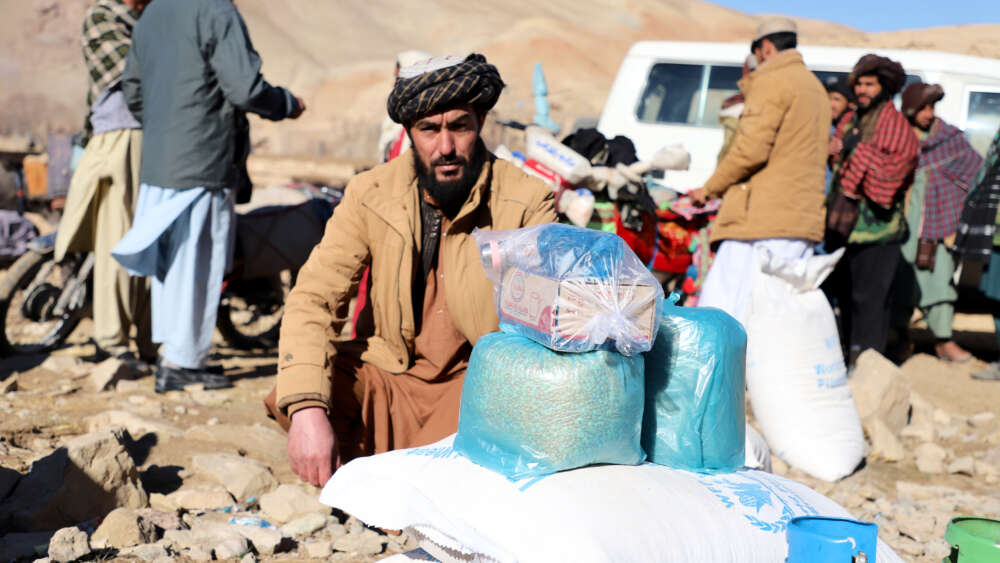An earthquake that has killed about 25 people in Afghanistan has devastated an already impoverished community battling to survive the country’s deepening humanitarian crisis.
World Vision Afghanistan staff are responding after a magnitude-5.6 tremor struck in Badghis province last night in the country’s northwest, one of the key areas the international aid organisation is working in. The victims died when roofs of their houses collapsed on Monday in Qadis district, according to news agency reports.
Hundreds have been left homeless in the middle of a bitter winter according to reports, after the quake flattened houses largely constructed out of mud. The number of casualties could increase as Badghis, bordering Turkmenistan, is a mountainous province and one of Afghanistan’s most impoverished and underdeveloped regions.
World Vision Australia CEO Daniel Wordsworth said it was another terrible blow to a country where nearly 23 million people – more than half the population – are in the grip of extreme hunger. But he said the organisation had committed to stay and deliver in Afghanistan, and staff would be assessing the needs on the ground today in the district of Qadis.
“The Afghan people have endured so much, and this compounds an already dire situation for those living in this area who are struggling to put food on the table,” he said.
“Now, their houses are gone in the middle of winter, leaving them even more vulnerable and exposed. Many of their homes are traditionally made out of clay and don’t stand a chance against sizeable earthquakes. In Australia it would be a relatively small quake, but in Afghanistan the devastation is amplified because of the impoverished conditions the people are living in. As always, our staff are ready to help and will do whatever they can to respond once the needs are assessed.”
World Vision had been running programs in the province since 2001, including small business development, natural resource management and a women’s market, before they were suspended following the Taliban takeover in August 2021.
A resilience-building project run by the Australian Department of Foreign Affairs and Trade in 196 villages in Badghis, including the Qadis district, helped improve the livelihoods of more than 60,000 families between 2014 and 2021, including training women to become beekeepers.
Since last year, the organisation has been focusing on life-saving needs including food distribution, water and sanitation. As the country’s humanitarian crisis deepens, the UN recently warned 1.1 million acutely malnourished children under the age of five will be left without access to treatment this year if no action is taken.
World Vision staff report that families are selling their belongings on city streets to survive, burning clothes to ward off the cold of a bitter winter while children are sharing hospital beds and dying of malnutrition. Funding remains one of the major stumbling blocks for humanitarian organisations in the country and $4.44 billion is needed in 2022 to reach 22.1 million people.
Email This Story
Why not send this to a friend?


